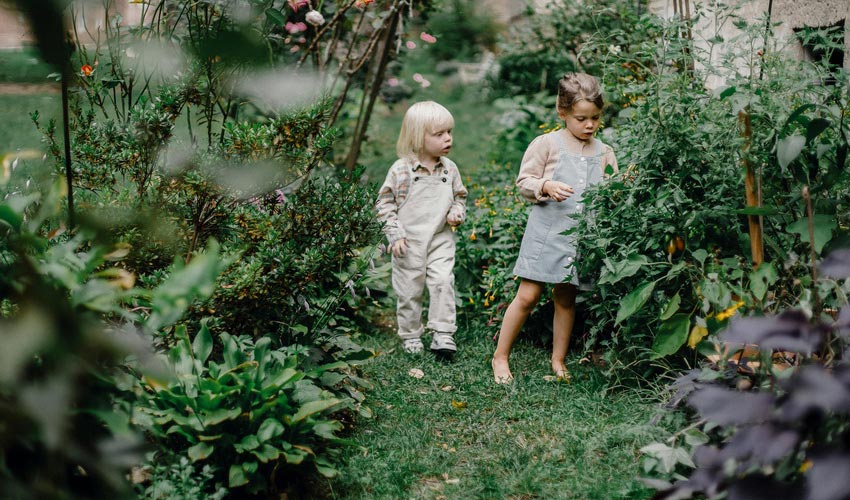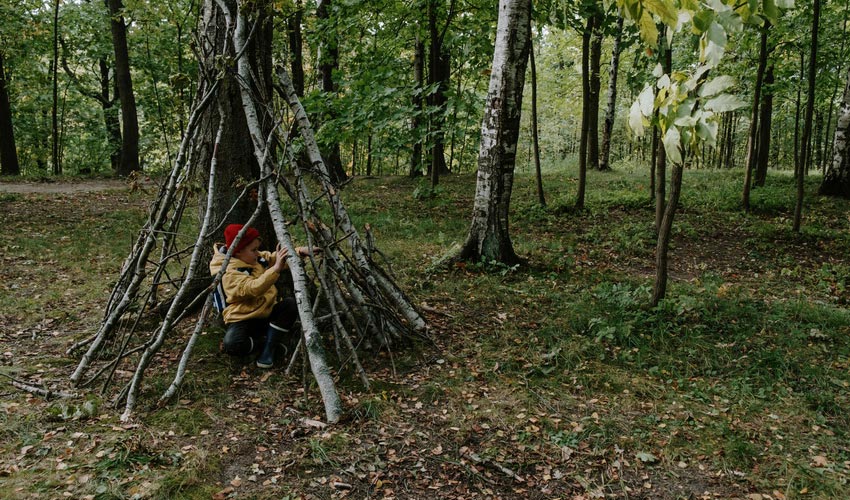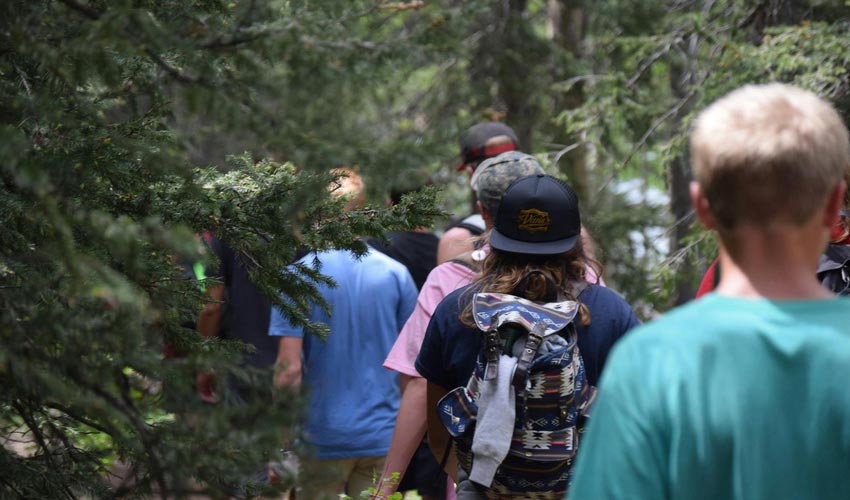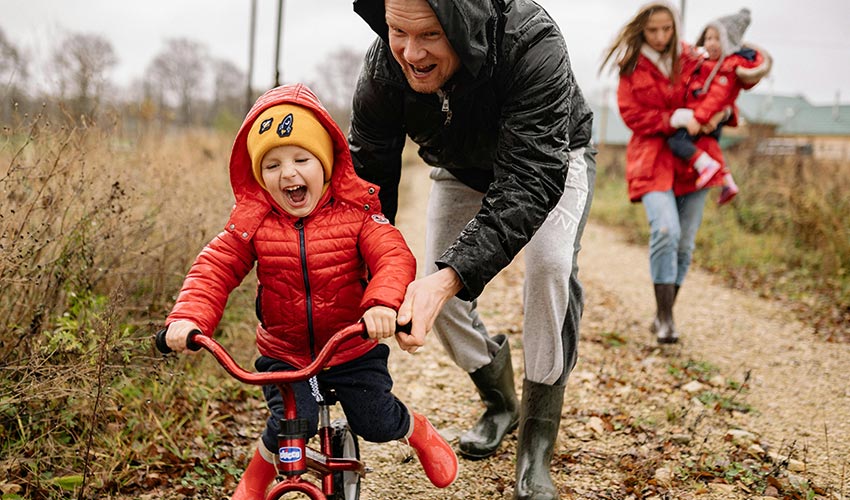Day-Care Centres in Finland Planted Forests, Resulting in Changes to Children's Immune Systems
I recently stumbled upon a groundbreaking Finnish study that I simply can't keep to myself. This research is essential for parents of young children, and I knew I just had to share it with all of you. Imagine a group of tiny tots frolicking through a mini forest, tending to their own little garden of delights, all the while unknowingly boosting their immune systems. A whimsical experiment in Finland has shown that just one month of playing in this green wonderland can have a profound impact on a child's health. Day-care workers took matters into their own hands, rolling out a lush lawn, planting forest undergrowth like dwarf heather and blueberries, and providing planter boxes for the youngsters to care for their own crops.
And what was the result? Well, a diverse array of microbes flourishing in the guts and on the skin of these little gardeners, making them healthier in the blink of an eye. Who knew that a touch of nature could work wonders for our immune systems? Leave it to the Finns to show us that sometimes, all it takes is a bit of greenery and some tender loving care to give our bodies a much-needed boost. So, next time you see a child playing in the dirt, just remember – they're not making a mess, they're cultivating a healthier future.

Forget playing on boring old pavement and gravel, these Finnish kids are getting their immune systems in tip-top shape by romping around in greened-up day-cares! Within just 28 days, 3-, 4-, and 5-year-olds were showing off some serious T-cells and other immune markers that would make any germ quake in fear. And get this - their gut bacteria was looking as fresh and healthy as kids who spend their days frolicking in the forest. Who knew that a little touch of green could pack such a punch for tiny tots? It's like nature's immune-boosting secret weapon, right in the heart of the city. Kudos to Finland for raising a generation of mini warriors!
So, imagine this: a group of scientists in Finland decide to play Mother Nature and switch up the greenery in a child's surroundings. They wanted to see if this little shake-up could have a big impact on the children’s microbiome and, ultimately, their immune system. And guess what? It totally did! Previous studies have hinted at a connection between green spaces and a well-functioning immune system, but this experiment takes it a step further. By actually juggling urban environments and studying how it affects the little ones, these researchers are shaking up the game. And what about the results, you might ask? Well, they're not crystal clear, but they definitely point in the direction of giving your immune system a boost by simply changing the scenery.
In a universe dominated by hand sanitizer and vitamins, could it be that we've been overlooking the most potent antidote of all? Yes, people, I'm talking about good old fashioned fresh air! So, when your energy wanes and the sniffles threaten to ruin your day, skip the medicine cabinet and take a leisurely jaunt in the great outdoors. Mother Nature might just hold the secret remedy you've been craving this whole time. It's time to trade in that bottle of pills for a dose of natural wonder – your well-being will thank you!

Imagine a world where concrete and gravel dominate the landscape, where nature is just a distant memory. According to the 'biodiversity hypothesis,' this lack of living things could be wreaking havoc on our immune systems, leading to a surge in immune-related illnesses. In a groundbreaking 2020 study, researchers found that the low biodiversity in urban environments may be causing our immune systems to go haywire, resulting in a spike in immune-mediated diseases.
Picture this: a group of urban day-cares, each with their own unique outdoor space. Some have the typical concrete jungle yards, while others boast a mini oasis of grass and forest undergrowth. The researchers compared the microbial diversity in these different environments, observing the impact on the 75 kids aged 3 to 5 who frequented them. The findings were crystal clear: those exposed to nature on a daily basis had a more robust immune system, while those stuck in the urban jungle were more susceptible to immune-related illnesses. So, next time you're debating between a backyard full of concrete or one teeming with life, think about your immune system. After all, nature might just be the best medicine.
For the past month, a lucky group of kids from the final 4 day-cares got to playing their brand new backyard playground 5 days a week. And boy, did they make the most of it! But it wasn't all fun and games - researchers were on a mission to uncover the mysteries of microbiota. Before and after the trial, scientists dove deep into the skin and gut microbes of these mini adventurers. What they discovered was nothing short of astonishing. Compared to their less fortunate counterparts who were stuck in dreary day-cares, these backyard explorers showed significant improvements in their microbiota. In just a few weeks, these nature-loving tykes saw an increase in the diversity of microbes on their skin and in their guts. And why does this matter, you ask? Well, diversity is the spice of life - especially when it comes to a healthy immune system. These little outdoor enthusiasts were building up a microbial army, ready to take on any mean germs that dared to come their way.

Their results were so impressive that they rivalled even the second group of outdoor-loving kids who got to go on daily nature outings. So, next time you're debating between a concrete jungle and a lush green paradise for your little ones, remember - a little dirt never hurt anyone. In fact, it might just be the key to a healthier, happier life. In a world where kids spend more time indoors glued to screens than cheerfully playing in the great outdoors, it seems Mother Nature has a little ace up her sleeve. A pint-sized powerhouse by the name of gammaproteobacteria has been making waves among the dirt-diggers and tree-climbers of the world, boosting their skin's immune defences and ramping up their immune secretions in the blood. Say goodbye to interleukin-17A, the troublemaker of immune-transmitted diseases, as its levels take a nosedive in the presence of our microbial friend. Sinkkonen, the wise sage of the scientific realm, points to these findings as concrete proof that good old fashioned nature playtime is the key to warding off those nasty autoimmune diseases and allergies. So, parents and guardians, release your young ones from the clutches of technology and let them go wild in the backyard jungle. Who knew a little dirt under the fingernails could be the secret to a robust immune system?
The evidence might not be a slam dunk just yet when it comes to proving that nature has a direct impact on children, but the signs are certainly pointing in that direction. It seems as though the benefits of green spaces are more than just a boost for our immune systems. That fresh air and sunshine are doing wonders for our eyesight and mental well-being, not to mention potentially reshaping the very structure of our little ones' brains. What's causing all these miraculous changes? Who knows! Maybe it's the immune system getting a kick in the pants, or perhaps it's the result of inhaling pristine air, basking in sunlight, moving our bodies more, or simply finding a bit of peace and quiet. One thing's for sure, though: Mother Nature may be onto something when it comes to the health and happiness of our kiddos.

Navigating the convoluted maze of real-world variables that affect our health in scientific studies is about as easy as herding cats in a tornado. And when it comes to the curious case of rural children boasting less asthma and allergies, the plot thickens with the murky link to green spaces. The research, with its teeny-tiny sample size and mere correlation, is about as inconclusive as a magic eight ball in a dark room. But no need to worry, for the wise minds in Finland have some pearls of wisdom to offer in the midst of this scientific chaos. "Let the tykes play in puddles and revel in the joys of digging in dirt," declares the esteemed environmental ecologist Aki Sinkkonen, who hails from the prestigious University of Helsinki.
"A daily dose of nature playtime could be the secret sauce to boosting their microbe mojo." It's a simple prescription with minimal risks and maximum rewards, as basking in nature's embrace as a child can set the stage for a greener future in more ways than one. Not only do nature-loving kiddos tend to grow up to be tree-hugging adults, but they also play a vital role in safeguarding our planet's delicate ecosystems. In a world hurtling towards an uncertain future, nurturing a love for nature in the next generation is a crucial step towards ensuring the preservation of our precious Earth. Just remember to keep those tetanus shots up to date, advises Sinkkonen with a wry grin. After all, a healthy dose of nature is good for the soul, but a rusty nail to the foot is nobody's idea of a fun time.
"Study nature, love nature, stay close to nature. It will never fail you." - Frank Lloyd Wright
You can read the full study here: Biodiversity intervention enhances immune regulation and health-associated commensal microbiota among day-care children.






















